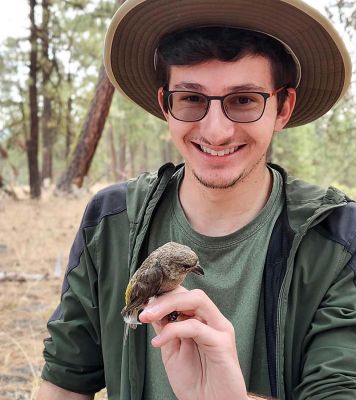Locked for decades, Oregon City cabinet reveals Native artifacts (copy)
Published 8:19 am Wednesday, March 30, 2022

- Items that the McLoughlin Memorial Association returned recently to the Grand Ronde tribes included five baskets, one large shark tooth, red dentalium beads used for jewelry, a large round weight, three pestles and two small stone bowls.
An Oregon City-based nonprofit organization’s surreptitious discovery of Native artifacts spurred the McLoughlin Memorial Association to repatriate a large batch of items to the Confederated Tribes of the Grand Ronde.
Volunteers for the nonprofit recently returned the items to the Grand Ronde, including five baskets, one large shark tooth, red dentalium beads used for jewelry, a large round weight, three pestles and two small stone bowls.
Trending
“The return of belongings, like these, is always a homecoming,” said Grand Ronde spokesperson Sara Thomson. “For the community, their presence grounds our people and practices in the past and reminds us of our ancestor’s efforts to persist, while also reassuring us as we move forward into the future.”
Oregon City Commissioner Denyse McGriff was among the volunteers on the Rose Farm Management Committee who recommended the items’ transfer to the McLoughlin Memorial Association, whose board approved their return to the Grand Ronde.
“We all felt that it was the right thing to do,” McGriff said.
For many years, members of the Rose Farm Management Committee were unable to open a bookshelf/desk secretary in the 1847 Holmes House, the oldest American home in Oregon City. After giving up on finding a key that fit, Abba’s Integrity Lock and Key came to open the cabinet.
“To my great surprise the shelves that were not visible contained many artifacts,” McGriff said. “Mrs. Ruth McBride Powers had not documented many of the items in the house, and we were not sure where they came from.”
Grand Ronde tribal archeologist Michael Lewis identified all of the items transferred from the Rose Farm to the Grand Ronde as being from the many bands of Native peoples who now make up the tribal confederation. In the coming months, Grand Ronde officials said, the items will be studied and accessioned into the tribe’s collection.
Trending
“The contents of the tribe’s collection is used for rotating exhibits at Chachalu Museum and Cultural Center, as well as for learning and research by tribal members and staff for supporting ongoing cultural practices and lifeways of our people,” Thompson said.
The staff from the Chachalu Tribal Museum and Cultural Center also helped the Rose Farm identify other baskets that may belong to tribes in Washington state. Grand Ronde officials said that baskets are identifiable by region, tribe, and sometimes to the family or maker through the understanding of different material types, weaving techniques, patterns and designs.
“There are dozens if not hundreds of variables that can indicate to a knowledgeable person information about a basket’s origin and maker,” Thompson said.
Rose Farm’s donation of the artifacts to the Grand Ronde is part of a larger trend of repatriation of Native objects to various tribes nationally.
In March, two obsidian artifacts found in a Lake Oswego backyard over 50 years ago were repatriated to the Grand Ronde’s museum and cultural center by the Oswego Heritage Council. The tools, identified as a projectile point and a scrape made from stone glass over 11,000 years ago, were commonly used by Indigenous tribes while hunting and preparing food.
Grand Ronde’s museum recently received a yearlong loan to display some of its tribal heritage, but the tribe hopes to someday reclaim ownership of the artifacts in the Summers Collection that spent more than a century stowed out of sight in a London warehouse. Rev. Robert W. Summers was a minister who began purchasing and trading for objects in the 1870s from people forcibly relocated to Grand Ronde two decades prior. He collected under the assumption that the peoples living at Grand Ronde would soon be extinct.
Summers’ health deteriorated toward the end of the 19th century, so he sold his collection to a colleague, who gifted it to the British Museum in 1900. The items since sat in storage, never displayed publicly, until visiting the Grand Ronde Museum from May 2018 to May 2019.
“Our rights, our identity, our land — all of that was taken,” said Cheryle A. Kennedy, tribal council chairwoman. “But a little group of Grand Ronde people got together and we said, ‘No more. We’re not taking this. We are who we are. We’re not a club. We’re a distinct group of people.'”
The Confederated Tribes of Grand Ronde regained federal recognition in 1983 after several years of restorative efforts. Soon they began seeking repatriation of the Summers Collection items.
“As we were told in the readings I’ve seen was that if we do survive, then these articles are to be returned to us,” Kennedy said.
Two years after joining the tribal council in 2000, Kennedy went to the British Museum to visit the artifacts. She said she was dismayed to learn the items had spent all those years in storage rather than in public view. That deepened her desire, she said, to bring them home.
“If they’re not of value to you, they are to us. I don’t care what they look like,” she recalled. “These were made by the hands of my grandparents and I want them.”
But the British Museum locks its collection under the British Museum Act 1963, which makes “disposal of objects” (or repatriation) virtually unattainable without an act of Parliament.
Securing even a short-term loan of items from the Summers Collection came at a steep cost.
The tribe needed exhibit space and somewhere to store the items. They had to pay for couriers to transport the items to and from England.
Donations of artifacts, arrowheads, stone tools and basketry to the Grand Ronde can be done by contacting Chachalu Museum and Cultural Center staff at 503-879-2226 or by email at Cultural.Resources@grandronde.org. The homelands of the Confederated Tribes of Grand Ronde are over 30 tribes and bands of tribal people over 14 million acres of lands focused in Western Oregon.
Oregon Public Broadcasting, a news partner of Pamplin Media Group, contributed to this report.









